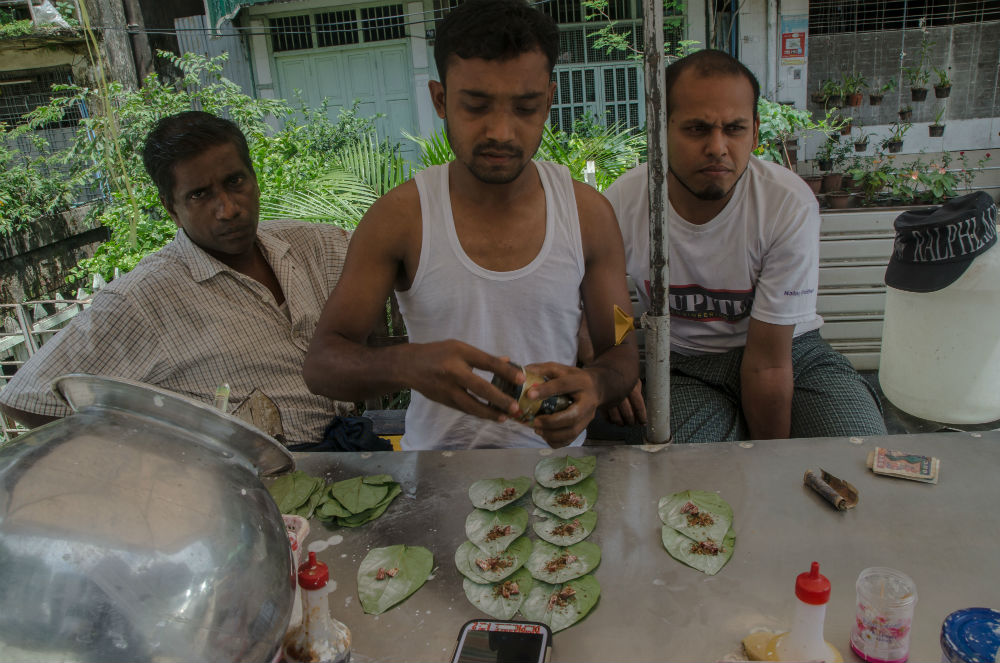South Koreans living in an Incheon neighborhood where a group of Burmese have recently carved out a little enclave were at first perplexed, then worried. What were the little red splotches that had begun to appear around town? Some sort of outbreak?
The answer was, thankfully, a lot less alarming: betel nut.
Getting to the bottom of it was the Korean bureau of Australian-based news agency SBS, which produced a video that local Burmese-language outlet Democratic Voice of Burma was able to translate.
The special report by SBS details how some South Koreans have become alarmed by the random red splotches.
“When I go around Bupyeong Station in Incheon City, I often find red stains on the floor, trees, and trees in the streets. I found this red mark that is like spraying paint and also like a bloodstain,” a resident told SBS Korea.
The team at SBS Korea revealed that the red splotches were the result of betel-nut chewing Burmese folks living in a small enclave with a Buddhist monastery, Burmese convenience store and a Burmese restaurant.
“In fact, when I go to Bupyung station on holiday, I can easily see Myanmarese gathering and chatting while chewing bae (betel nut), but most citizens do not know that it is the mark of betelnut at first glance,” he added
The Democratic Voice of Burma first reported on the coverage of the mysterious splotches by SBS Korea, which also dispelled myths that they were related to rising crime or mysterious machete wielding vigilantes.
Police told SBS Korea that they were cleaning up the area around Bupyeong Station with the Myanmar community, while coordinating policies to prevent more betel nut from being spit on the streets of Incheon.
Chewing betel nut, or “kun-ya” is one of the most popular past times for locals in Myanmar and many other parts of Asia, despite the dangers of chewing the areca nut (the active ingredient that stains your teeth, tongue and mouth dark red and black).
Doctors and health organizations have sounded the alarm about the health risks of chewing betel nut, a habit that a specialist for the World Health Organization told the Myanmar Times in 2015 that over half of Myanmar’s men and 16% of its women engage in.
More campaigns are appearing to curb the habit while others are capitalizing on improving the quality of life for regular users. Stop Betel Myanmar is a public health campaign working to educate the public about the dangers of chewing betel nut and how to quit. A new start-up, Zingo Myanmar, creates products that are specifically tailored to treat the symptoms associated with betel-nut use, including stained teeth and sensitivity.





Reader Interactions